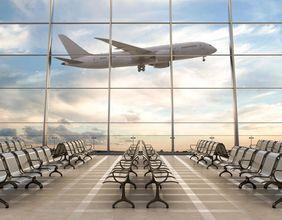Summary
- Rail Delivery Group has urged government authority not to reduce APD taxes on UK domestic flight.
- Tax reduction on airline tickets could drift passengers’ traffic from rail to air network and lead to an increase in annual carbon emission.
British rail industry members body, the Rail Delivery Group (RDG), which brings together companies from passengers and freight sector, has requested the government not to reduce air passenger duty (APD) on UK domestic flight routes for the journey of less than five hours, as any plan to cut taxes will see an estimated 222,000 passengers a year move to air network from the rail.
To boost the UK domestic flying and connectivity, the government in March 2021 had put forward aviation tax reforms for consultation which suggested reducing APD to half, which currently works out to £13 to the tickets cost in standard class. The government plan for aviation tax reforms came after domestic airlines suffered severe-hit last year due to the covid-19 pandemic and new reforms offer a glimmer of hope for the airline companies future as the regional airline Flybe had blamed APD for its financial struggles that led to its collapse in March last year.
However, the decision is facing criticism from Rail Delivery Group which has argued that the tax cut will not only see passengers migrate from rail to air route even for short-distance travel, but extra flights would lead to an increase in carbon emission by 27,000 tonnes per year.
Let us have a look at two FTSE listed Airline stocks and see how they are performing amid the development:
Ryanair Holdings Plc (LON: RYA):
The low-cost airline in its May month traffic statistics stated that passenger traffic improved to 1.8 million with a Load Factor of 79%, also airlines operated over 12,000 flights in May month which show healthy signs of recovery post the second wave of coronavirus.
In the year ended 31 March 2021, the company saw its passenger traffic slump by 81% to just 27.5 million which impacted the company’s revenues, which were down by 81% to €1.64 billion. The airline posted a net loss of €815 million compared to a profit of €1,002 million a year ago.
The company expects Q1 traffic to be in the range of 5 to 6 million, however, it anticipates close to breakeven in terms of profits assuming ease in travel restrictions and successful vaccination.
Shares of Ryanair Holdings were trading at EUR16.09, down 0.28% on 16 June at 9:25 am GMT+1 with a market cap of £15,550.11 million.
Wizz Air Holdings Plc (LON: WIZZ)
FTSE 250 listed, the low-cost airline carried 0.8 million passengers in May 2021 with a Load Factor of 66.1% and announced the opening of its 43 bases in Rome. Also, Wizz Air launched flights to its latest destination Salalah and Muscat (Oman), Bari (Italy) and Kiev (Ukraine).
In FY21, passenger traffic for the airlines saw a dip of 74.6% to 10.2 million, with reported revenue declining to €739 million and suffering a net loss of €576.0 million.
In its FY22 guidance, the company expects to operate at 30% capacity in the first quarter and has predicted net loss during the year if there is a delay in the lifting of restrictions. From FY23 company expects a strong trading environment and plans to operate at full capacity.
Shares of Wizz Air Holdings were trading at GBX4714, down 0.13% on 16 June at 10.55 am GMT+1 with a market cap of £4862.86 million.





